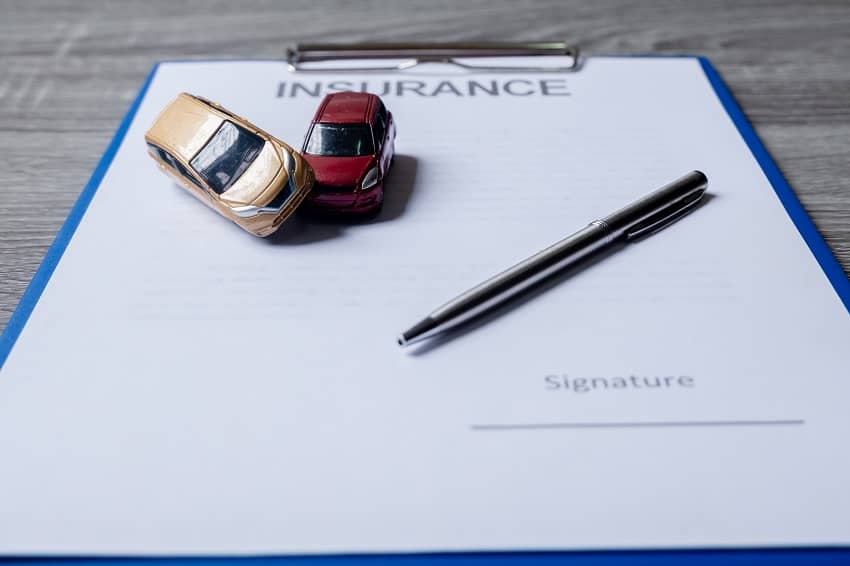New car insurance is a type of policy that is purchased to protect a newly acquired vehicle. When purchasing a new car, it is important to secure insurance coverage to protect against any potential damages or accidents.
Car insurance provides financial protection to the car owner and helps to cover the cost of repairs or replacement in case of an accident or theft. There are different types of car insurance policies available, including comprehensive coverage, liability coverage, collision coverage, among others.
Understanding the different types of policies and their coverage options can help car owners make informed decisions when selecting a policy. Before choosing a new car insurance policy, it is recommended to compare rates and coverage options from different insurance providers to find the best deal.
Table of Contents
Factors That Affect New Car Insurance Rates
New Car Insurance: Get The Best Rates And Coverage Today!
If you’re in the market for a new vehicle, you’ll want to take a close look at insurance rates and coverage to ensure you’re making the best decision for your budget. Insurance rates vary depending on several factors, and it’s essential to understand how these factors affect your premiums.
Age Of Vehicle
The age of your vehicle is one of the most significant factors that determine your insurance rate. Newer cars generally cost more to insure than older models due to their higher value and replacement costs. They’re also likely to have more advanced safety features, which could reduce your premiums.
Here are some key points to consider:
- New cars can cost up to 20% more to insure than older models.
- Older cars with advanced safety features may qualify for discounts.
- Cars with a higher risk of theft may have higher premiums.
Type Of Vehicle
The type of vehicle you drive is also a significant factor that impacts your car insurance rate. The make, model, and body style of your car can all affect your premiums. For example, sports cars and luxury vehicles typically have higher insurance rates than practical, family vehicles.
Consider the following when choosing a vehicle:
- Larger, heavier vehicles tend to be safer and less expensive to insure.
- Expensive and rare cars can have higher insurance rates due to their higher replacement cost.
- Cars with high safety ratings may qualify for lower premiums.
Safety Ratings
The safety rating of your vehicle is another critical factor that affects insurance rates. Vehicles with high safety ratings are generally less expensive to insure since they’re considered less of a risk to insure.
Here are some key points to remember:
- Vehicles with advanced safety features may qualify for discounts.
- Cars with high safety ratings generally have lower insurance rates.
- Cars with a higher risk of accidents may have higher premiums.
Driver’S Age, Gender, And Driving History
Your age, gender, and driving history will also affect your car insurance rates. Younger drivers and males may have higher premiums since they’re considered higher risk drivers. Similarly, drivers with a history of accidents or traffic violations may also have higher insurance rates.
Take note of the following:
- Drivers under 25 have higher insurance rates due to their lack of experience.
- Women may have slightly lower premiums due to being considered safer drivers.
- Drivers with a good driving record may be eligible for safe driving discounts.
As you can see, several factors impact your new car insurance rates. By understanding these factors, you’ll be better equipped to make an informed decision when shopping for a new vehicle. Consider all of the variables carefully, and you’ll be able to find an insurance policy that provides you with the right coverage at the best possible price.
Types Of New Car Insurance Coverage
New Car Insurance: Get The Best Rates And Coverage Today!
When you buy a new car, having the right insurance coverage is essential to protect your investment and ensure that you are financially secure in case of an accident or other unexpected event. We’ll explore the different types of new car insurance coverage available to you and help you understand the benefits of each.
Liability Coverage
Liability coverage is the most basic type of car insurance and is usually required by law. This coverage protects you if you cause an accident that results in damage to another person’s vehicle or property, or if someone is injured or killed in the accident.
Here are the key points you need to know about liability coverage:
- Liability coverage has two parts: Bodily injury liability and property damage liability.
- Bodily injury liability coverage pays for medical and related expenses if you cause an accident that injures someone else.
- Property damage liability coverage pays for repairs or replacements if you cause an accident that damages someone else’s property.
Collision Coverage
Collision coverage is the type of insurance that covers damage caused to your car in the event of an accident. It is not required by law, but it is highly recommended if you have a new car or a car that is still being financed.
Here are some key points to know about collision coverage:
- Collision coverage pays for repairs to your car if it is damaged in a collision.
- If your car is totaled (i.e., the cost of repairs exceeds the car’s value) in a covered collision, collision coverage will pay the actual cash value of the car.
Comprehensive Coverage
Comprehensive coverage is another optional type of car insurance that covers damage to your car for reasons other than collision, such as theft, vandalism, or weather-related damage. Here are the key points to remember about comprehensive coverage:
- Comprehensive coverage is often required if you lease or finance your car.
- Comprehensive coverage pays for repairs to your car if it is damaged by something other than a collision or if your car is stolen.
- Like collision coverage, comprehensive coverage will pay the actual cash value of your car if it is totaled.
Personal Injury Protection
Personal injury protection (pip) is a type of car insurance that covers medical expenses for you and your passengers, regardless of who is at fault in an accident. It is required in some states and optional in others. Here are some key points about personal injury protection:
- Pip coverage pays for medical expenses, lost wages, and other related expenses if you or your passengers are injured in an accident.
- Pip coverage typically has a limit, which varies by state.
Uninsured/Underinsured Motorist Coverage
Uninsured/underinsured motorist (um/uim) coverage is insurance that protects you if you are in an accident with someone who does not have enough insurance to cover the damages. Here are some key points about um/uim coverage:
- Um/uim coverage pays for property damage and medical bills if you are in an accident with an uninsured or underinsured driver, or if you are a victim of a hit-and-run accident.
- Um/uim coverage is optional in most states.
With so many types of new car insurance coverage available, it’s important to choose the coverage that best fits your needs and budget. By understanding the benefits of each type of coverage, you can make an informed decision and feel confident that you and your car are protected.
Tips For Finding The Best New Car Insurance Rates
New Car Insurance: Get The Best Rates And Coverage Today!
When you purchase a new car, securing proper insurance coverage is crucial. After all, the right coverage can protect you from accidents, damages, and unexpected expenses that may come your way. If you’re looking for the best new car insurance rates, there are several aspects to consider.
Check out these tips to help you find the rates and coverage you need to keep your car and yourself safe.
Shop Around For Quotes
One of the easiest and most effective ways to secure the best new car insurance rates is to shop around for quotes. When doing so, compare prices from at least three different insurance providers, but make sure that you’re comparing the same coverage options.
Consider factors that may affect your rates such as your age, driving history and credit score. That can help you get a better understanding of how these factors impact your premium.
Consider Bundling With Other Types Of Insurance
If you already have an insurance policy for a different type of coverage, consider linking your new car insurance with the same company. This could help you qualify for bundling discounts that can significantly lower your new car insurance rates.
Bundling home, auto, and life insurance can oftentimes lead to the most significant savings.
Take Advantage Of Discounts And Incentives
Many insurance companies offer discounts and incentives for good driving behaviour, such as safe driving or low-mileage. Other discounts may be available to those who have good credit, belong to specific organizations, or are military veterans. Make sure that you compare the discounts offered by different insurance providers to find the right one for you.
Assess Your Driving Habits And Determine Your Coverage Needs
To ensure that you’re getting the best coverage at the best price, assess your driving habits carefully. For example, consider how often you drive your car, where you’ll be travelling most often, and so on. This will help you identify your coverage needs, and choose the type of coverage that you need.
It is important to have sufficient coverage for bodily injury liability, property damage liability, collision coverage and comprehensive coverage based on your driving habits.
By following these tips, you can secure the best new car insurance rates that will cater to your needs in the long run. So go ahead and get yourself insured because you never know when you’ll need it!
Understanding The Claims Process For New Car Insurance
New Car Insurance: Get The Best Rates And Coverage Today!
As a new car owner, it is essential to understand how the claims process works. In the unfortunate event of an accident, filing a claim with your insurance company can be a stressful and confusing experience. However, this process can be much smoother if you understand what to do and what to expect during the claims process.
This section will provide a step-by-step guide on what to do in the event of an accident, how to file a claim with your insurance company, and what you should expect during the claims process.
What To Do In The Event Of An Accident:
- First, ensure your safety and the safety of others involved in the accident.
- Call for medical help if there are any injuries.
- If your car is causing a hindrance to other drivers, move it to a safer spot.
- Call the police if there is significant damage to your car or other property, or if anyone is injured.
- Make a note of the other driver’s insurance and driver’s license information, including their name, phone number, and address.
- Collect evidence of the scene of the accident, including photographs, videos, and witness statements.
How To File A Claim With Your Insurance Company:
- Contact your insurance company through their website, app, or phone number.
- Provide all the required information, including your policy number, driver’s license number, and accident details.
- Provide evidence of the damages and injuries incurred.
- Co-operate with the insurance company’s investigation if requested.
- Wait for the company’s response regarding your claim.
What To Expect During The Claims Process:
- Your insurance company will assign a claims adjuster to your case.
- The claims adjuster will investigate the accident, assess the damages, and determine the coverage under your policy.
- The adjuster will provide an estimated cost and may inspect your vehicle or ask you to take it to a repair facility.
- If you have the right coverage, your policy will cover the damages, and you will receive compensation.
- In most cases, your insurance rates may increase after filing a claim.
Navigating the claims process for your new car insurance can be a daunting task. Still, understanding what to do and what to expect can make it much smoother. Remember to stay calm at the scene of the accident, provide all necessary information to your insurance company, and be patient throughout the claims process.
With these tips, you can ensure that you receive the compensation you deserve while keeping your car and yourself protected.
Frequently Asked Questions On New Car Insurance
What Does New Car Insurance Cover?
New car insurance policies typically cover accident damages, theft, fire, and third-party liabilities. Some insurers may also include roadside assistance and personal accident cover.
How Much Does New Car Insurance Cost?
The cost of new car insurance varies depending on factors such as the car’s make and model, the driver’s age and driving history, and the insurer’s policy. It’s a good idea to compare quotes from different insurers before purchasing a policy.
Do I Need New Car Insurance If I Already Have A Policy?
If you’ve bought a new car, you’ll need a separate insurance policy. You should inform your insurer of your new purchase and cancel your old policy if you’re no longer using your old vehicle.
What Is A Deductible In New Car Insurance?
A deductible is the amount you pay out of pocket before your insurance coverage kicks in after an accident. It’s important to choose a deductible you can afford but also keep in mind that a higher deductible may lower your premium.
Can I Customize My New Car Insurance Policy?
Yes, some insurance companies offer customizable new car insurance policies with add-ons like zero depreciation, engine protection, and key replacement cover. Check with your insurer to see what options are available.
Conclusion
As the laws governing car insurance continue to evolve, we can expect a more competitive market. The introduction of new players into the industry will force existing companies to become more innovative in order to attract and retain customers. It is important for policyholders to remain vigilant and informed about the various insurance options available in the market to ensure they are getting the best value for their money.
Whether you are in the market for a new car insurance policy or are reviewing your current coverage, it is essential to consider the type of coverage you need, your budget, and any special needs specific to your situation. With the right car insurance, you can drive with peace of mind, confident in the knowledge that you are adequately protected in case of an accident or unforeseen event.
Remember, it always pays to shop around and compare policies before settling on one that best suits your needs.





